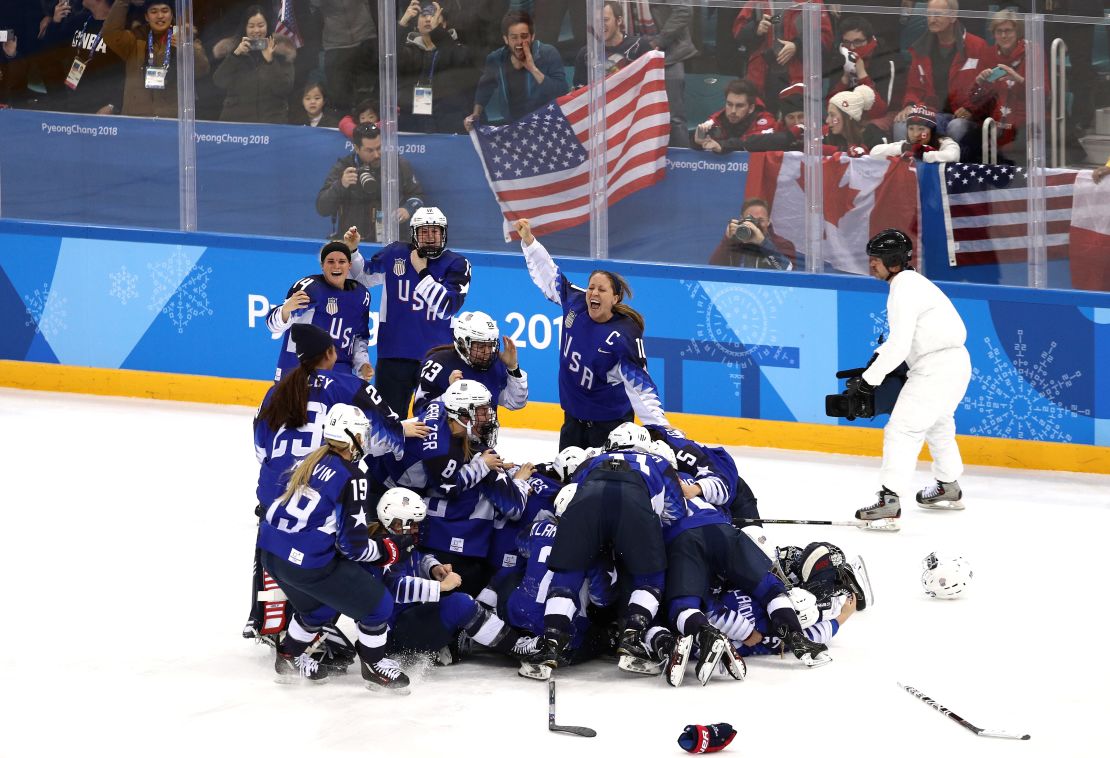Their timing couldn’t have been better.
On Friday, the US Women’s National Soccer Team sent a powerful message, using the backdrop of International Women’s Day and filing a lawsuit that accused the governing body for US soccer of gender discrimination.
And it’s not the first time that female athletes have pushed the envelope. Often, they’re the ones advocating for change and to be treated equally next to their male counterparts — whether they are advocating for equal pay, or just wanted to be able to compete.
Here’s just a few of the many times US women athletes called for equality.
Katherine Switzer

In 1967, 20-year-old Kathrine Switzer made history, becoming the first woman to officially run the Boston Marathon, despite the race director’s forceful attempt to expel her
At the time there weren’t written rules that said women couldn’t compete in the Boston Marathon. Switzer signed up with her initials.
Several miles into the race, however, she saw a man wagging his finger at her. She turned around and saw the man – the race’s director – chasing her, screaming, “Get the hell out of my race and give me those numbers!’” Switzer recalled in her memoir.
The moment was captured in an iconic photo that launched Switzer into advocacy for women in sports.
By 1972, Switzer had used her influence to ensure women were allowed to race in the Boston Marathon, which she ran multiple times.
She repeated the feat in 2017, 50 years after initially breaking the barrier.
Billie Jean King

You’ve heard of Serena and Venus Williams and Maria Sharapova. But you might not have without Billie Jean King, a female tennis pioneer credited with being a driving force behind the formation of the Women’s Tennis Association (WTA).
Back in the early ’70s, King was frustrated by the lack of parity with male tennis players. Women tennis players struggled to even find tournaments to play in, and they weren’t paid the same as their male counterparts.
In 1973 she defeated male Grand Slam champion Bobby Riggs in the “Battle of Sexes” in Houston. Riggs, who was 55 at the time of the match, had claimed that even at his age, he could beat the top women tennis players.
The WTA was formed that same year. President Barack Obama awarded her the Presidential Medal of Freedom in 2009.
US Women’s National Soccer Team

Friday’s lawsuit against US Soccer was not the first time the players of the women’s team made their voices heard.
Back in 2016, key members filed a complaint with the Equal Employment Opportunity Commission demanding equal pay. They argued that they were both more successful than the US men’s team and generated more money for US Soccer.
The complaint was not resolved, but the players eventually got a raise in 2017, and scored better hotel and travel accommodations in the process, in a deal that runs through 2021.
US Women’s Hockey

The US Women’s Hockey team in 2017 insisted they would sit out a major international tournament unless they saw progress in their negotiations with the sport’s US governing body for fair pay and equal treatment.
Players wanted a $68,000 salary and treatment equal to the men – including the ability to bring guests to competitions, business class airfare and disability insurance. They also demanded benefits like child care and maternity leave.
The two sides reached a deal three days before the International Ice Hockey Federation World Championship, though at the time they didn’t divulge details.
NFL cheerleader Jacalyn Bailey Davis

Last year, former cheerleader Jacalyn Bailey Davis filed a complaint with the Equal Employment Opportunity Commission, accusing the NFL and the New Orleans Saints of gender discrimination.
Her complaint noted cheerleaders had to abide not only by the NFL’s personal conduct policy – which applies to all NFL personnel – they also had to contend with verbal and emailed guidance controlling the way they interacted with players.
But NFL players, her complaint said, did not have to follow any of those restrictions.
Davis had been fired for posting a photo of herself in lingerie, after purportedly having been admonished by Saints officials for allegedly being at a party where an NFL player was – one of the forbidden tenants of the unwritten rules.
Davis wasn’t the first NFL cheerleader to allege unfair treatment. Cheerleaders from the New York Jets. Cincinnati Bengals, Tampa Bay Buccaneers, Oakland Raiders and Buffalo Bills had all sued before, demanding fair pay.
CNN’s Emanuella Grinberg, Ahiza Garcia, Euan McKirdy and Paul Gittings contributed to this report.






